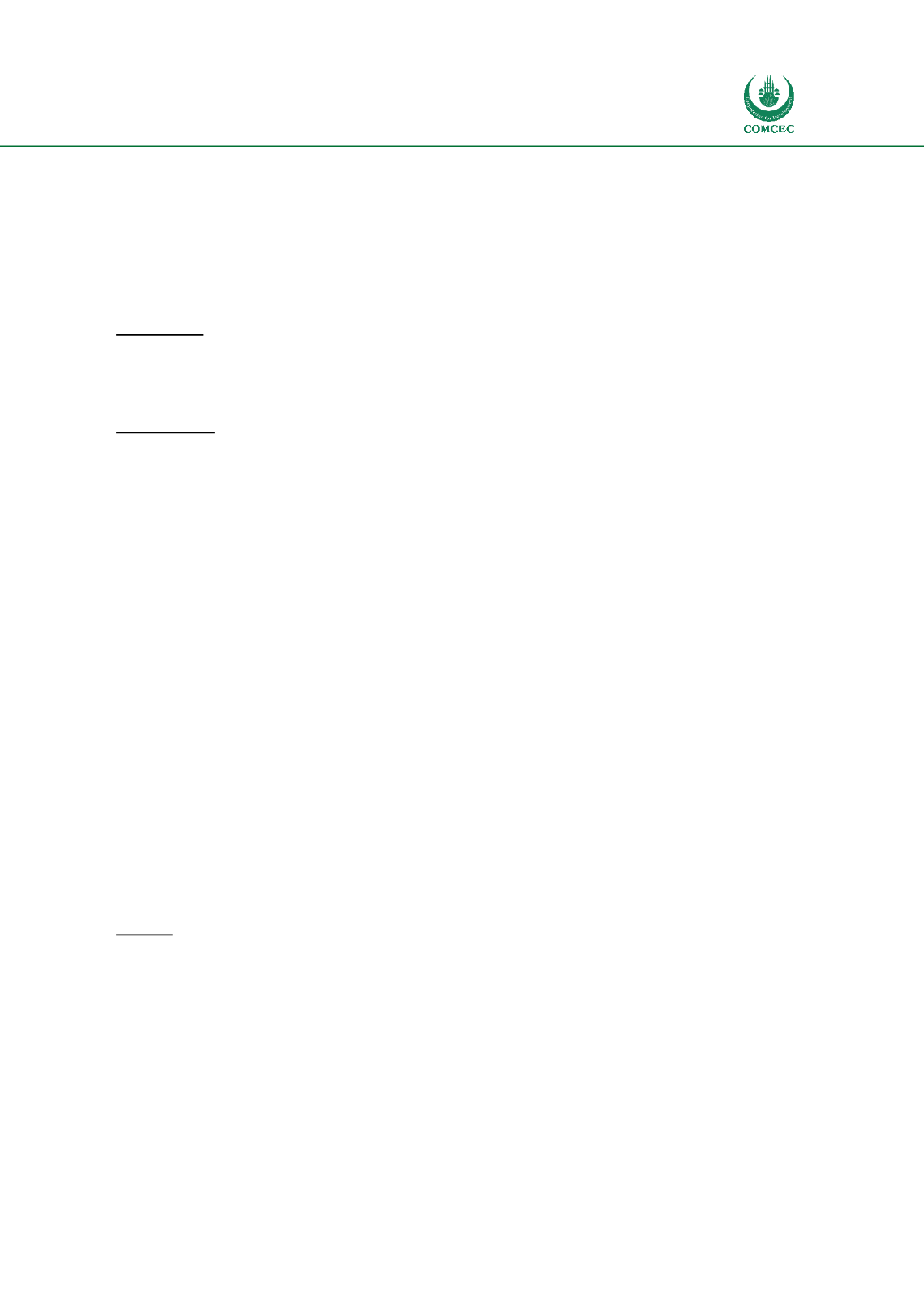

Special Economic Zones in the OIC Region:
Learning from Experience
147
The LFDZ is owned as a joint venture between a Chinese consortium - China-Africa Lekki
Investment Co. Ltd (CALIC) – 60%, the Lagos State Government – 20%, and its sub-entity, Lekki
Worldwide Investment Ltd – 20%. The Lagos State Government’s equity share is in return for
providing the land and the 50-year right to operate the zone to the Chinese consortium.
5.6.5
Economic Profile
Real Estate
The State Government contributed towards the construction costs of the zone infrastructure, in
partnership with the developer.
Sector Focus
The Lekki Fee Zone is targeting a wide array of investment in the following areas:
Light industry manufacturing: Light Industries; Solar Panels Assembly; Furniture;
Garment; Building Materials; Plastic Products; Telecommunication Accessories;
Heavy industry manufacturing: Textile manufacturing; Equipment / Machinery;
Assembly; Cement/Fertilizer; Aluminum Sheets; Export Processing; Steel Pipe Mill;
Agro Allied Chemicals;
Oil & Gas: Petroleum Product Storage and Distribution; Blending Plant and Crude
processing;
Real Estate: Residential - Middle /High Income Houses; Hotel and Guest Houses; Office
Apartments; and
Tourism.
The focus of particular sectors is determined by different developers of the different quadrants.
The Lekki Free Zone Development Corporation, which has developed the Southwest quadrant
for example has focused on light and heavy industrial manufacturing. The Southeast quadrant
being developed by the Dangote group is set to develop a petroleum refinery, fertilizer
processing plant, sub-sea gas pipeline project, as well as a petro-chemical project.
Labour
Due to the zone’s close proximity to Lagos, there is a large labour pool for businesses to draw
on. The population of Lagos is around 20 million people, with a literacy rate in Lagos State of
92%, presenting a large semi-skilled workforce.
















